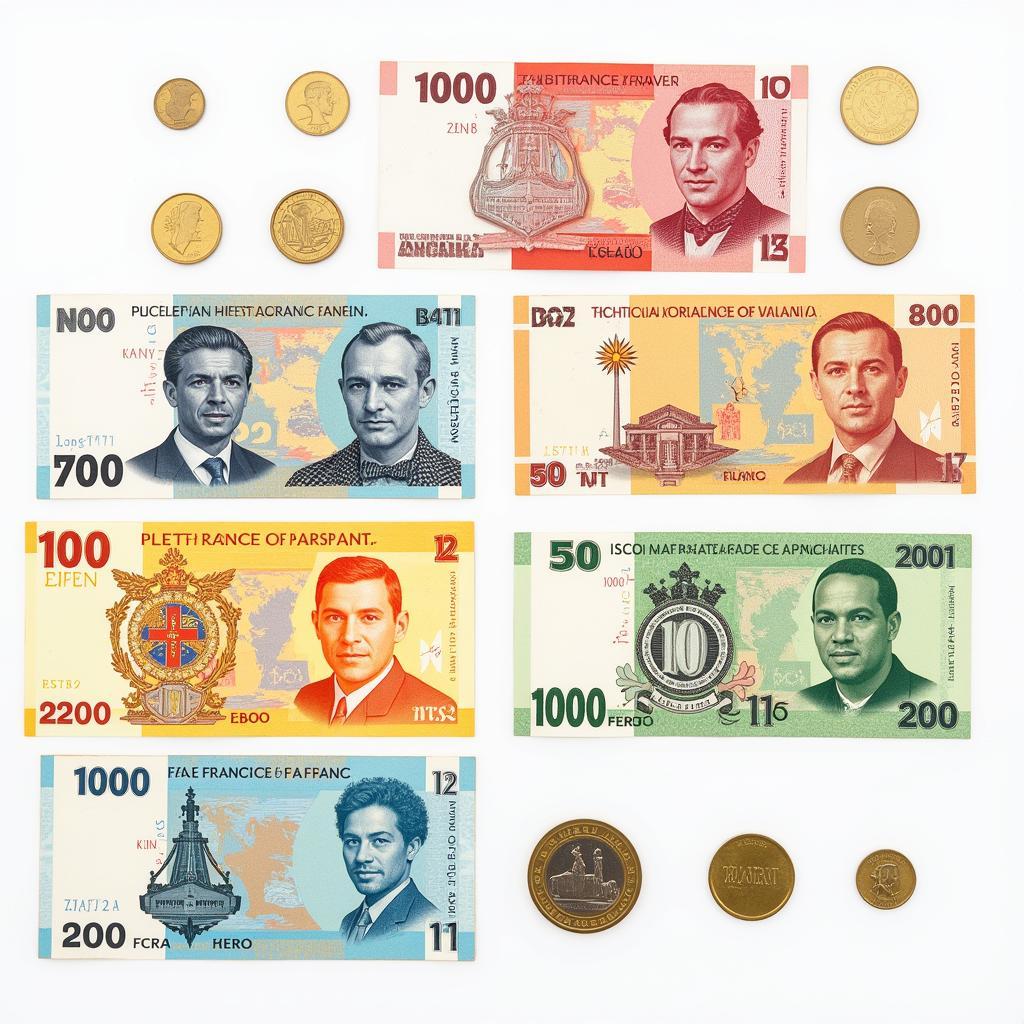African Countries and Regions Currencies: A Comprehensive Guide
Understanding African Countries And Regions Currencies is crucial for anyone engaging with the continent, whether for business, travel, or personal interest. This guide provides a detailed overview of the diverse monetary landscape of Africa, exploring the history, influences, and current state of its various currencies.
Exploring the Diversity of African Currencies
Africa boasts a rich tapestry of currencies, reflecting the continent’s complex history and diverse regional economies. Many countries maintain their own unique currencies, while others share common monetary units, often linked to former colonial powers. This diverse landscape can be initially confusing, but understanding the underlying principles can unlock a deeper understanding of African economies. Want to know how much African money is worth in Indian Rupees? Check out this resource: african currency to indian currency.
The Influence of Colonial History on African Currencies
The legacy of colonialism plays a significant role in the current monetary systems of many African nations. Several countries retain currencies tied to former colonial powers, such as the CFA franc, linked to the French treasury, used in West and Central Africa. This historical connection has sparked debate over monetary sovereignty and economic independence.
 CFA Franc Currency in West Africa
CFA Franc Currency in West Africa
Independent Currencies and Their Significance
Many African nations have established independent currencies, symbolizing their economic autonomy and national identity. These currencies, such as the Nigerian Naira, the Kenyan Shilling, and the South African Rand, play a vital role in their respective national economies. Understanding their fluctuations and influences provides insights into the economic health and prospects of these countries.
Key African Currencies and Their Regions
This section examines some of the most prominent African currencies and the regions where they are used. Learning about these currencies is essential for anyone planning to travel or conduct business within these areas.
The West African CFA Franc
The West African CFA franc is used by eight West African countries: Benin, Burkina Faso, Guinea-Bissau, Ivory Coast, Mali, Niger, Senegal, and Togo. Its value is pegged to the Euro, providing stability but also raising questions about monetary policy independence.
The Central African CFA Franc
Six Central African countries utilize the Central African CFA franc: Cameroon, Central African Republic, Chad, Republic of the Congo, Equatorial Guinea, and Gabon. Similar to the West African CFA franc, its peg to the Euro has both advantages and disadvantages. Curious about African countries and their capitals? This list will be helpful: african countries and capitals list.
The South African Rand
The South African Rand is the currency of South Africa, a major economic player on the continent. Its fluctuations impact regional trade and investment flows, making it a key currency to monitor.
North African Currencies
North African countries have their own distinct currencies, such as the Moroccan Dirham, the Algerian Dinar, the Tunisian Dinar, the Egyptian Pound, and the Libyan Dinar. These currencies reflect the unique economic characteristics and historical influences within the North African region. You can find more about converting African currencies, such as 100 West African Francs to Indian Rupees, here: 100 francs western african indian rupees.
Factors Affecting African Currency Values
Several factors influence the value of African currencies, including commodity prices, political stability, and global economic trends. Understanding these drivers is crucial for navigating the complexities of African financial markets.
Commodity Dependence and Currency Fluctuations
Many African economies are heavily reliant on commodity exports, making their currencies vulnerable to price fluctuations in the global market. Changes in commodity prices can significantly impact exchange rates and overall economic performance.
Political Stability and Economic Performance
Political instability can have a detrimental effect on currency values, leading to capital flight and decreased investor confidence. Stable governance and sound economic policies are essential for maintaining a strong and stable currency. What’s the African currency rate in Pakistan today? This resource has the information: african currency rate in pakistan today.
Conclusion
African countries and regions currencies offer a fascinating glimpse into the continent’s economic diversity and historical complexities. From the CFA franc’s colonial legacy to the independent currencies symbolizing national identity, understanding the monetary landscape of Africa is essential for anyone engaging with the continent. This knowledge empowers individuals and businesses to navigate the intricacies of African economies and foster meaningful connections.
For further assistance, please contact us at +255768904061, [email protected], or visit us in Mbarali DC Mawindi, Kangaga, Tanzania. We offer 24/7 customer support.

